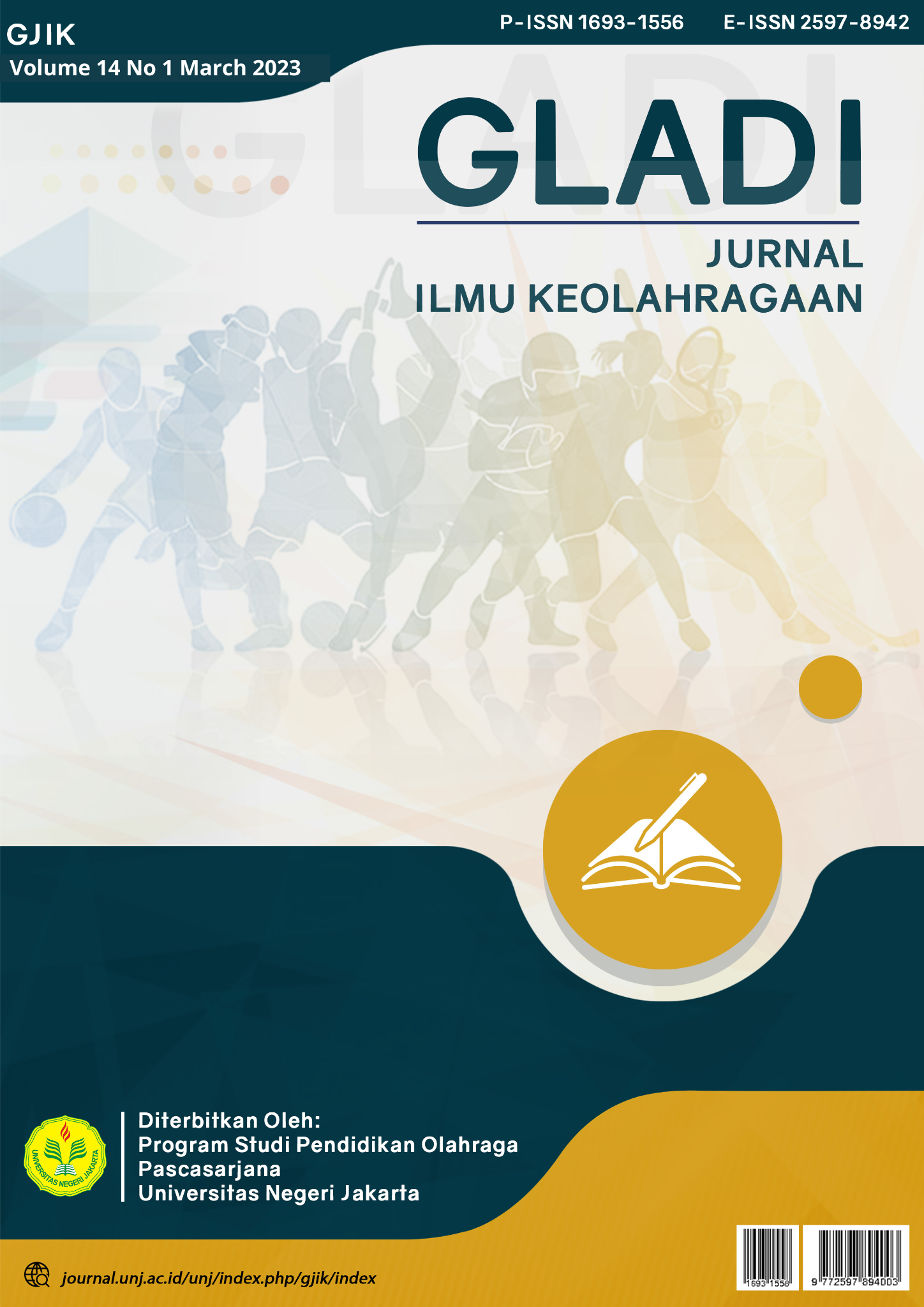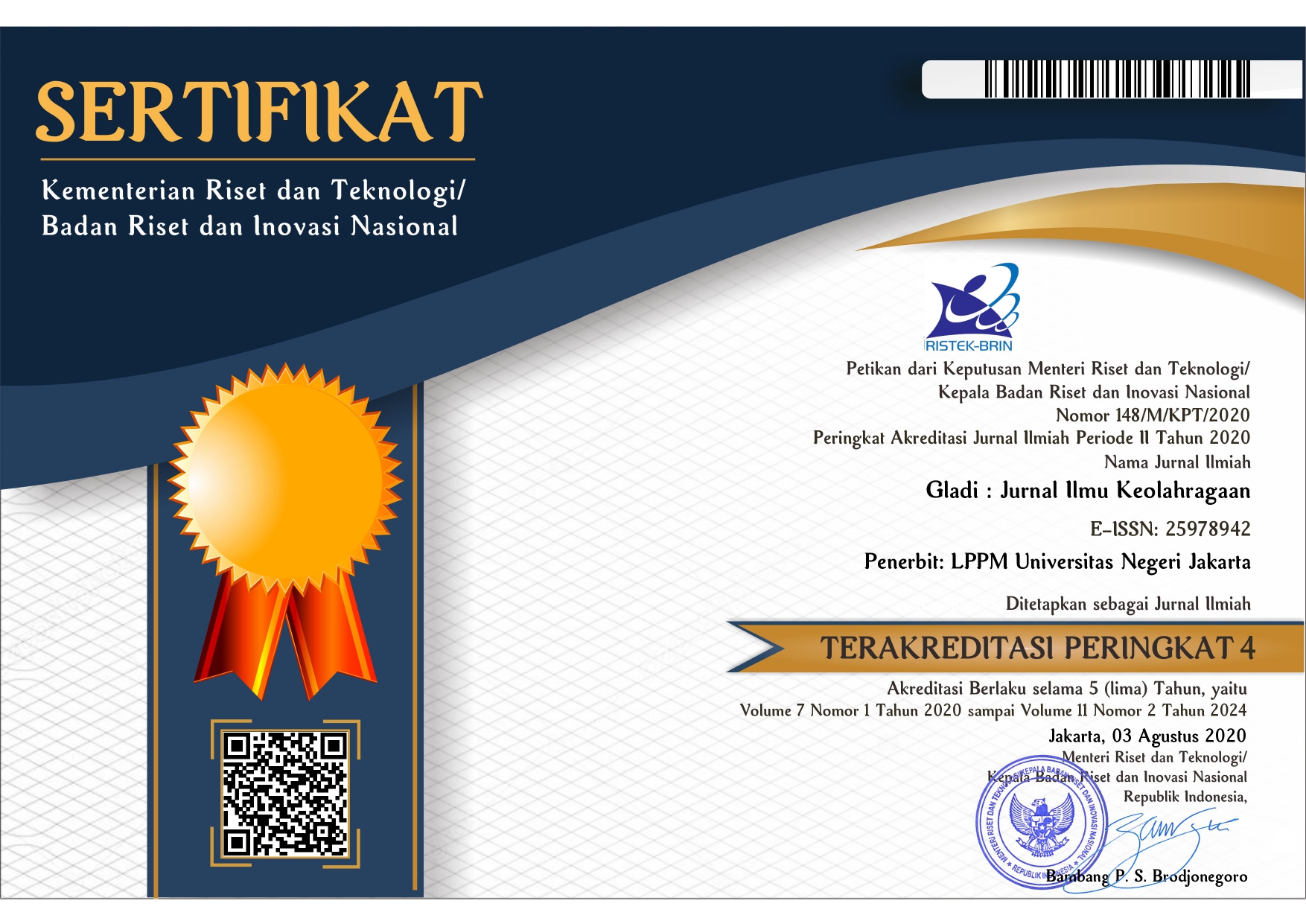Outdoor education model based on experiential learning in character education for junior high school students
Keywords:
Development, education, outdoor, character education, playAbstract
This research and development was made on the needs of formal school teachers to make it easier to understand and implement the concept of effective experiental learning based learning for informal program design and formal classroom activities related to field experience packaged in the form of games, discussions, simulations and adventures, which are expected to have the impact of the implementation of experiential learning. students move between modes of action, reflection, feelings and thinking. This research design refers to the Research and Development model of ADDIE. Broadly speaking this research is made in 5 stages, namely: Model analysis, Model design, Model development, Model implementation, Model evaluation. The data insturment test collected in this study both at the stage of obtaining basic data and at the trial stage is qualitative data. Therefore the main instrument in this study is the self research. To complete the data and as part of triangulation conducted discussions with expert lecturers, teacher collaborators, outbound instructors and experiental learning activists who are not involved in the research by collecting data using interview guidelines on teachers, questionnaires, questionnaires and observation learning. From the data analysis proved outdoor education model based on experiental learning seems effective to shape the values of character education. Based on the results of research with a model of approach and cohesion in its implementation is very helpful to excite learning, participatory involvement of students, joy and cheerfulness which means the implementation of outdoor learning is not only in the concept, the integration must be really attempted to occur in the learning process.
Downloads
References
Bergsteiner, H., Avery, G. C., & Neumann, R. (2010). Kolb’s experiential learning model: Critique from a modelling perspective. Studies in Continuing Education, 32(1), 29–46. https://doi.org/10.1080/01580370903534355
Branch, R. maribe. (2009). instructional design: the addie approach,. Springer. https://doi.org/DOI 10.1007/978-0-387-09506-6_1
Caulfield, J., & Woods, T. (2013). Experiential learning: Exploring its long-term impact on socially responsible behavior. Journal of the Scholarship of Teaching and Learning, 13(2), 31–48. http://josotl.indiana.edu/article/view/3235
Dimyati, & Mudjiono. (2006). Belajar dan Pembelajaran. Rineka Cipta.
Donelan, S. (2010). Introduction to “Injuries and illness in college outdoor education”. Wilderness & Environmental Medicine, 21(4), 362. https://doi.org/10.1016/j.wem.2010.05.003
Egbert, H., & Mertins, V. (2010). Experiential Learning with Experiments. International Review of Economics Education, 9(2), 59–66. https://doi.org/10.1016/S1477-3880(15)30050-5
Eileen, & Lynn. (2010). Profil Perkembangan Anak, Pra Kelahiran Hingga Usia 12 Tahun. PT. Indeks.
Fowler, J. (2008). Experiential learning and its facilitation. Nurse Education Today, 28(4), 427–433. https://doi.org/10.1016/j.nedt.2007.07.007
Hariri, C. A., & Yayuk, E. (2018). Penerapan Model Experiential Learning untuk Meningkatkan Pemahaman Materi Cahaya dan Sifat-Sifatnya Siswa Kelas 5 SD. Jurnal Ilmu Pendidikan Dan Kependidikan, 8(1), 1–15.
Harun, M. T., & Salamuddin, N. (2010). Cultivating personality development through outdoor education programme: The Malaysia Experience. Procedia - Social and Behavioral Sciences, 9, 228–234. https://doi.org/10.1016/j.sbspro.2010.12.141
Høyem, J. (2020). Outdoor recreation and environmentally responsible behavior. Journal of Outdoor Recreation and Tourism, 31(July). https://doi.org/10.1016/j.jort.2020.100317
Kim, D. (2015). A Study on the Class of Education that Builds Students’ Character Through Films – Classes at the University of Liberal Arts. Procedia - Social and Behavioral Sciences, 174, 1529–1533. https://doi.org/10.1016/j.sbspro.2015.01.784
Legge, M. F., & Smith, W. (2014). Teacher education and experiential learning: A visual ethnography. Australian Journal of Teacher Education, 39(12), 94–109. https://doi.org/10.14221/ajte.2014v39n12.7
Mei-Ju, C., Chen-Hsin, Y., & Pin-Chen, H. (2014). The Beauty of Character Education on Preschool Children’s Parent-child Relationship. Procedia - Social and Behavioral Sciences, 143, 527–533. https://doi.org/10.1016/j.sbspro.2014.07.431
Mowen, B. D. (2006). Student Learning as a Result of Experiential Education. 515.
Muhamad Asvin Abdur Rohman. (2019). Pendidikan Karakter di Sekolah Menengah Pertama (SMP): Teori, Metodologi dan Implementasi. Qalamuna: Jurnal Pendidikan, Sosial, Dan Agama, 11(2), 125–146. https://ejournal.insuriponorogo.ac.id/index.php/qalamuna/article/view/96/89
Setyosari, P. (2015). Metode Penelitian Pendidikan dan Pengembangan. Prenamedia Group.
Sugiyono. (2008). Metode penelitian pendidikan - pendekatan kuantitatif, kualitatif, dan R & D. Alfabeta.
Tan, Y. S. M., & Atencio, M. (2016). Unpacking a place-based approach - “What lies beyond?” Insights drawn from teachers’ perceptions of Outdoor Education. Teaching and Teacher Education, 56, 25–34. https://doi.org/10.1016/j.tate.2016.02.001
Tangkudung, W. P. dan J. (2012). Kepelatihan Olahraga, Pembinaan Prestasi Olahraga Edisi II. (C. Jaya (ed.); 2nd ed.).
Ülger, M., Yiğittir, S., & Ercan, O. (2014).







